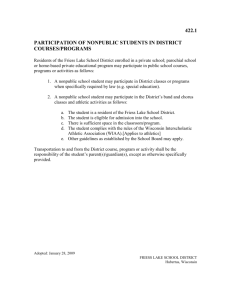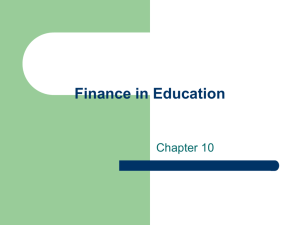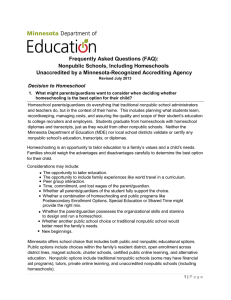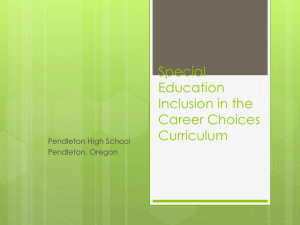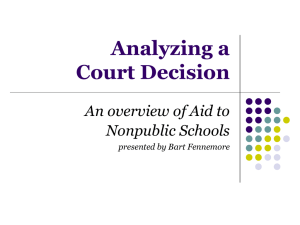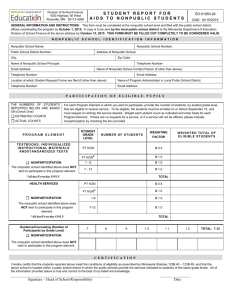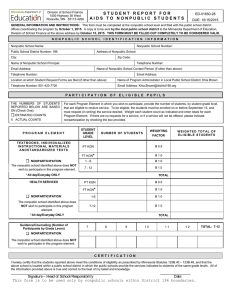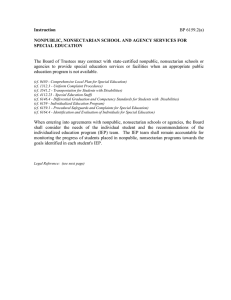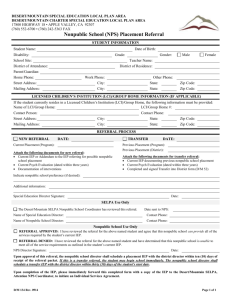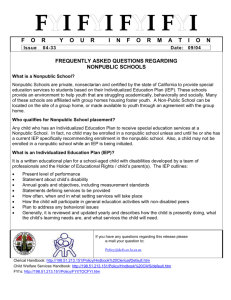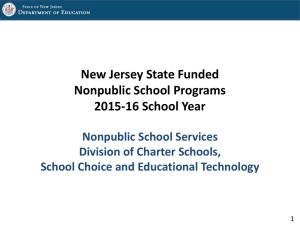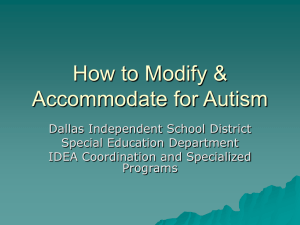Frequently Asked Questions FAQ Sheet # 21 Question: Do we
advertisement
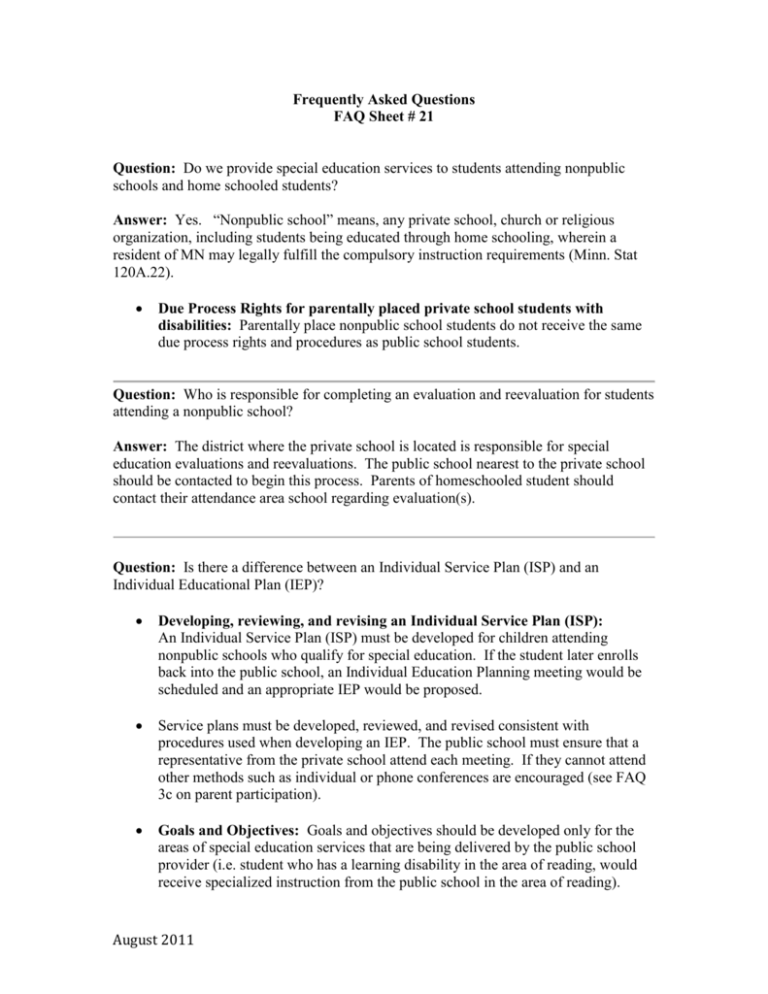
Frequently Asked Questions FAQ Sheet # 21 Question: Do we provide special education services to students attending nonpublic schools and home schooled students? Answer: Yes. “Nonpublic school” means, any private school, church or religious organization, including students being educated through home schooling, wherein a resident of MN may legally fulfill the compulsory instruction requirements (Minn. Stat 120A.22). Due Process Rights for parentally placed private school students with disabilities: Parentally place nonpublic school students do not receive the same due process rights and procedures as public school students. Question: Who is responsible for completing an evaluation and reevaluation for students attending a nonpublic school? Answer: The district where the private school is located is responsible for special education evaluations and reevaluations. The public school nearest to the private school should be contacted to begin this process. Parents of homeschooled student should contact their attendance area school regarding evaluation(s). Question: Is there a difference between an Individual Service Plan (ISP) and an Individual Educational Plan (IEP)? Developing, reviewing, and revising an Individual Service Plan (ISP): An Individual Service Plan (ISP) must be developed for children attending nonpublic schools who qualify for special education. If the student later enrolls back into the public school, an Individual Education Planning meeting would be scheduled and an appropriate IEP would be proposed. Service plans must be developed, reviewed, and revised consistent with procedures used when developing an IEP. The public school must ensure that a representative from the private school attend each meeting. If they cannot attend other methods such as individual or phone conferences are encouraged (see FAQ 3c on parent participation). Goals and Objectives: Goals and objectives should be developed only for the areas of special education services that are being delivered by the public school provider (i.e. student who has a learning disability in the area of reading, would receive specialized instruction from the public school in the area of reading). August 2011 Goals and objectives are not developed for instruction delivered by non public school providers (including parent for home schooled children). Accommodations/Modifications: Accommodations and modifications are the responsibility of the staff providing the service. The ISP should only reflect accommodations and modifications that district service providers would deliver when the student is receiving service at the public school setting. Question: Is the delivery of special education services for nonpublic students equivalent to service delivery to students attending public school? Answer: Services that are provided must be comparable in quality but not quantity. Public schools may provide private school students with disabilities fewer services but must be delivered by licensed staff meeting the same standards as providing service in the public schools. Location and scheduling of services: The public school has the right to determine where and when services will be provided. Services are typically provided at the public school aligned by grade level that is located nearest the private school and in accordance with the public school calendar and student hours. Related Services: Related services are defined as those necessary for a student to benefit from their special education services. Related services, such as Occupational Therapy, Physical Therapy, and assistance from an autism resource specialist, are often provided through indirect consultation with the case manager and/or the non public school teacher (goals are not written for consultation). The district is responsible for transportation if needed. If the public and private schools are within walking distance, a para may be assigned to walk the students safely to and from the public school. August 2011
